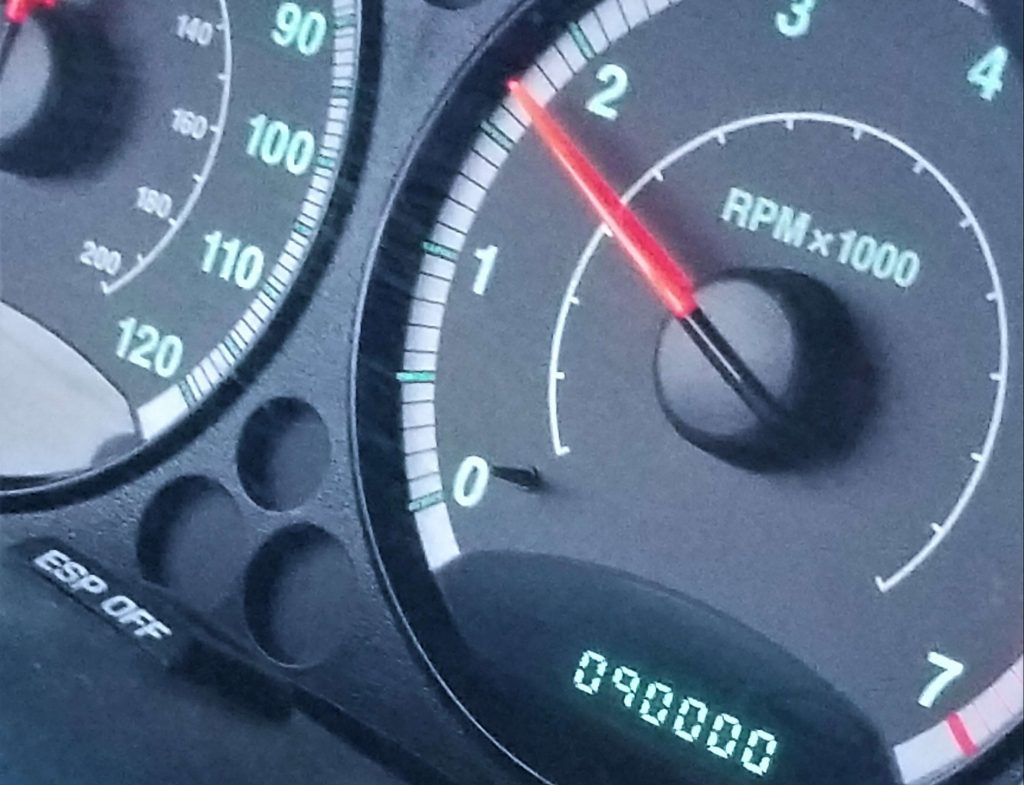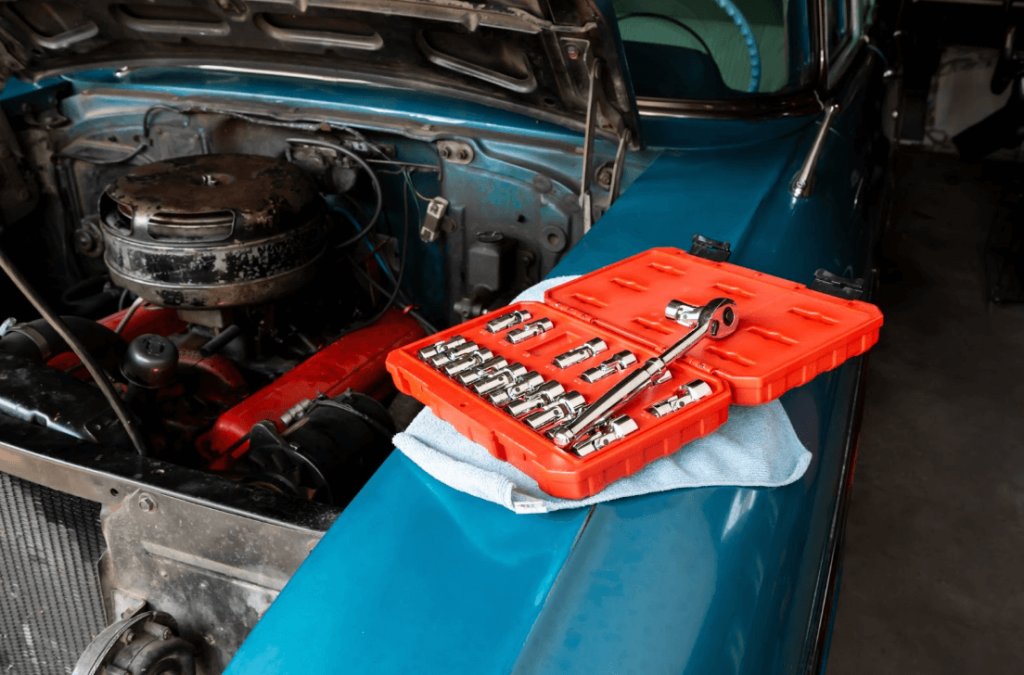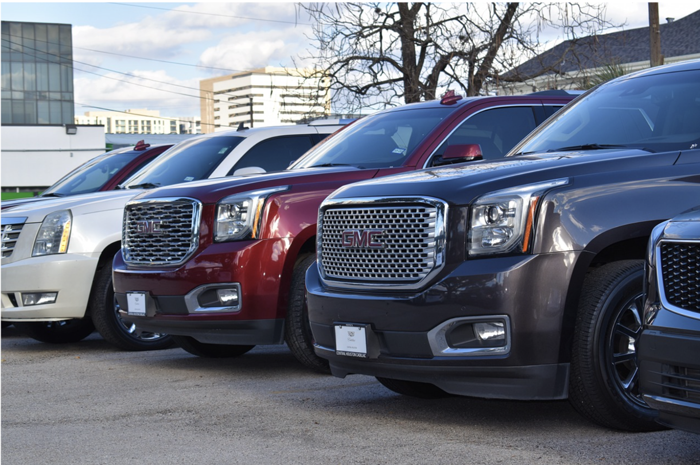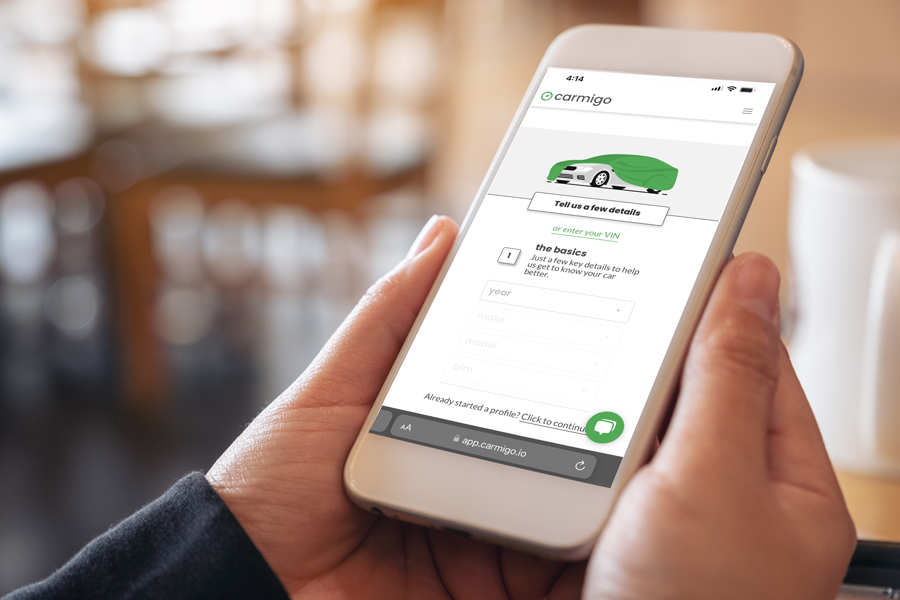When it comes to selling your car, timing can make a significant difference in the price you receive. The automotive market is constantly changing, affected by various factors such as supply and demand, economic conditions, and seasonal fluctuations. Do you find yourself contemplating the question, “Should I sell my car now?” If so, this blog post aims to provide insights into determining the best time to sell your car for maximum value.

Mileage is an essential factor to consider when deciding the best time to sell your car. The number of miles your vehicle has been driven directly affects its value. Cars with lower mileage tend to be more attractive to potential buyers because they are perceived to have less wear and tear and a longer remaining lifespan. Here’s how mileage can impact your car’s resale value:
a) Low Mileage Advantage: If your car has relatively low mileage compared to its age, it can be advantageous to sell it sooner rather than later. Buyers are often willing to pay a premium for a vehicle that has been driven less, as it suggests that the car has been well-maintained and has fewer potential issues. Low mileage can also indicate that the car has not been subjected to excessive wear and tear, making it a more appealing option for buyers.
b) Mileage Thresholds: While there is no specific mileage threshold that determines when you should sell your car, certain milestones can have an impact on its value. For example, if your car is approaching 100,000 miles, it may be wise to consider selling it earlier rather than later. Many buyers perceive this mileage point as a potential turning point for increased maintenance and repair costs. On the other hand, if your car has exceptionally low mileage for its age, it might be worth waiting until it reaches a significant milestone, such as 50,000 miles, as it could attract a higher resale value.
c) Balanced Mileage: It’s important to strike a balance between maximizing your enjoyment of the vehicle and preserving its resale value. If you plan to sell your car in the near future and are concerned about mileage affecting its value, you might consider alternatives such as carpooling or using alternative transportation methods for daily commuting to minimize the mileage accumulation.

The age of your car is another significant consideration. Generally, newer models tend to retain their value better than older ones. If your vehicle is nearing a milestone year, such as reaching a decade or beyond, it might be worth considering selling it sooner rather than later to capitalize on its residual value. Here are a few key points to consider:
Depreciation: Cars, in general, depreciate over time, meaning their value decreases as they age. While depreciation rates vary depending on factors such as the make, model, and condition of the vehicle, it is generally more pronounced in the early years. New cars typically experience the highest depreciation in the first few years of ownership. By selling your car before it reaches a significant age milestone, you can potentially avoid a steep decline in its value.
Maintenance and Repair Costs: As vehicles age, the likelihood of encountering mechanical issues and the need for repairs increases. Older cars may require more frequent maintenance, which can become costly over time. By selling your car before it reaches an age where maintenance costs escalate, you can potentially save money and increase its appeal to potential buyers.
Technological Advancements: The automotive industry is continuously evolving, with new technological advancements being introduced regularly. Newer car models often come equipped with the latest safety features, improved fuel efficiency, and enhanced infotainment systems. As a result, older cars may become less desirable as buyers seek out the benefits of newer technology. Selling your car before it becomes outdated can help you maximize its value.
Warranty Coverage: Many new cars come with manufacturer warranties that offer coverage for a certain period or mileage. These warranties can provide peace of mind to potential buyers. If your car is nearing the end of its warranty period, selling it before the coverage expires can be advantageous, as the buyer may be more willing to pay a higher price for the added security.
Historical Significance: In some cases, certain car models become collectors’ items or gain historical significance as they age. These vehicles may appreciate in value over time, making it beneficial to hold onto them. However, it’s important to note that such cases are relatively rare and typically apply to unique or limited-production vehicles.

The condition of your car plays a vital role in determining its resale value. If your vehicle is in excellent shape, both mechanically and aesthetically, it will likely fetch a higher price. However, if it requires extensive repairs or shows signs of wear and tear, it might be advisable to sell it sooner rather than waiting for further depreciation. Here are some key points to consider when assessing the condition of your car:
Mechanical Soundness: A well-maintained car with a solid mechanical history will generally command a higher price. If your vehicle has been regularly serviced, with records to prove it, it demonstrates that you have taken good care of it. On the other hand, if your car has unresolved mechanical issues or requires significant repairs, it may be wise to sell it sooner rather than later. Potential buyers will likely negotiate a lower price or be deterred altogether by substantial repair costs.
Exterior Appearance: The exterior of your car is the first impression potential buyers will have. Evaluate the paintwork for any signs of fading, scratches, dents, or rust. Small cosmetic issues can usually be fixed easily, but significant damage might require costly repairs. It is important to weigh the cost of repairs against the potential increase in resale value.
Interior Condition: The condition of your car’s interior can greatly influence its desirability. Check the upholstery, dashboard, and overall cleanliness of the cabin. Stains, tears, or excessive wear and tear can detract from the value of your car. A thorough interior cleaning and addressing any minor issues can help enhance the overall appeal and potentially increase its selling price.
Vehicle History: Be transparent about any accidents or major incidents your car has experienced. If you have comprehensive maintenance records and can demonstrate that the vehicle has been well taken care of, it instills confidence in potential buyers. Additionally, a clean title with no liens or outstanding finance provides peace of mind to buyers and simplifies the selling process.
Upgrades and Modifications: Consider any aftermarket upgrades or modifications you have made to your car. While personalization might appeal to some buyers, it can also limit your potential market and affect the resale value. Evaluate whether the modifications are desirable and add value, or if it would be more advantageous to return the car to its original condition before selling.
Safety and Emissions Compliance: Ensure that your car meets all safety and emissions standards required in your region. Having valid inspection certificates and compliance with local regulations can make your car more attractive to buyers and streamline the selling process.

Understanding the current market demand for your car’s make and model is crucial for maximizing its value. Keep an eye on trends and fluctuations in the automotive market. If your car falls within a popular category or if there is a shortage of similar vehicles, you might be able to fetch a higher price by selling it now.
Demand: Market demand refers to the number of buyers seeking a specific make and model of car at any given time. When the demand for a particular type of vehicle is high, sellers have the advantage as they can potentially command higher prices. Several factors can influence demand:
Supply:
Market supply refers to the number of similar vehicles available for sale in the market. When the supply is high, sellers face more competition, potentially leading to lower prices. Several factors affect the supply of vehicles:

Seasonal variations can also impact the value of your car. For example, convertibles tend to be more desirable during the summer months, while SUVs are sought after in winter due to their handling capabilities in inclement weather. Consider the type of car you have and its suitability for different seasons when deciding the best time to sell. Here’s a closer look at how seasons can impact the resale value of your car:
Spring and Summer:
Spring and summer are generally considered the peak seasons for selling cars. As the weather improves, more people venture out to car dealerships and private sales, leading to increased demand. During these months, convertibles, sports cars, and other vehicles that are associated with leisure and outdoor activities tend to be in high demand. If you own a convertible or a sports car, it might be beneficial to sell it during the spring or summer when potential buyers are actively searching for these types of vehicles.
Fall:
Fall can be a transitional season for the automotive market. While the demand might not be as high as in the spring and summer, it can still be a favorable time to sell certain types of vehicles. As the weather cools down, there is an increased interest in SUVs, trucks, and other vehicles suitable for outdoor adventures and winter conditions. If you own a larger vehicle or an all-wheel-drive model, consider selling it in the fall when potential buyers are looking to prepare for the upcoming winter season.
Winter:
Winter tends to be a slower season for car sales in many regions, primarily due to the challenging weather conditions. However, there are still opportunities to sell your car during this time. Four-wheel-drive SUVs, crossover vehicles, and sedans with good traction and safety features are often in demand during the winter months. If you have a vehicle suitable for snowy or icy conditions, targeting buyers who prioritize winter readiness can help you secure a better deal. Additionally, selling your car before the end of the year might be advantageous for potential buyers looking to make tax-related purchases.
Early Year Considerations:
The beginning of a new year can present opportunities for selling your car. Some buyers may have received holiday bonuses or tax returns, which can make them more willing to make a purchase. Additionally, as new car models are released, there is a chance for increased demand for used cars as consumers explore their options. Keep an eye on the market and consider selling your car early in the year to leverage these factors.

Broader economic factors can also influence the resale value of your car. During economic downturns, buyers may be more price-conscious, leading to a decrease in demand and lower prices. On the other hand, during periods of economic growth, buyers may be more willing to spend on vehicles, which could translate into a higher selling price. Here are some key points to consider:
Economic Stability: The overall economic stability of a region or country can influence the demand for vehicles. During periods of economic uncertainty or recession, potential car buyers may be more cautious with their spending, leading to decreased demand and lower prices. On the other hand, during times of economic growth and stability, consumers may have more confidence in their financial situation, which can lead to increased demand and potentially higher prices.
Fuel Prices: Fluctuations in fuel prices can affect the demand for different types of vehicles. When fuel prices are high, there is often a greater demand for fuel-efficient cars, hybrids, or electric vehicles. Conversely, when fuel prices are low, larger vehicles such as SUVs and trucks may become more desirable. Understanding the current fuel price trends and how they align with your car’s characteristics can help you determine the best time to sell.
Interest Rates: The prevailing interest rates can impact the affordability of financing a vehicle. Lower interest rates tend to make car loans more attractive, as they result in lower monthly payments for buyers. This can stimulate demand for cars and potentially increase their resale value. Conversely, higher interest rates can deter potential buyers, leading to decreased demand and potentially lower prices.
Consumer Confidence: Consumer confidence plays a significant role in the automotive market. When consumers feel optimistic about their financial situation and the economy as a whole, they are more likely to make big-ticket purchases such as cars. Positive consumer sentiment can create a favorable selling environment, as increased demand can lead to higher prices. On the contrary, if consumer confidence is low, buyers may be more hesitant to make significant purchases, potentially impacting the resale value of your car.
Manufacturer Incentives and Rebates: Keep an eye on manufacturer incentives and rebates that may be available during specific economic periods. Manufacturers often offer promotions and discounts to stimulate sales during slower times, which can influence the resale value of your car. If there are attractive incentives on new vehicles, it might affect the demand for used cars and potentially impact their prices.

After assessing your vehicle and weighing the best times to sell, you may be in search of the easiest and quickest option out there. Carmigo can help you sell your car fast, and easily without missing out on a great deal. Plus, you set your own reserve price and have no obligation to pay if your minimum isn’t met.